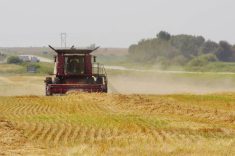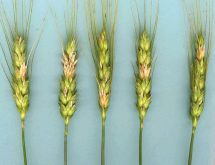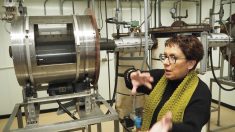If you’ve ever watched “smackdown” wrestling on television, you have to admit it’s entertaining, in a perverse sort of way, watching those muscle-bound burly sorts strutting around pounding their chests like apes and shouting insults. Even when they are throwing punches or tossing each other out of the ring, it’s pretty obvious that it’s all a well-orchestrated act.
However, it’s not so much fun watching the ongoing verbal slugfest between grain industry leaders over the future of the cereals industry in Canada. Scratch the surface of some of these exchanges and the bitter feuds that erupted during the Canadian Wheat Board debate quickly boil to the surface.
Read Also

GATE project nears 50 per cent of fundraising goal
Farmers at the SaskWheat annual meeting hear GATE raises $42.65 million, but questions continue over cost of Cereals Canada project.
There is no question that some of the farmers who fought long and hard to preserve the single-desk monopoly still feel the sting of defeat. It colours their view of efforts to move the industry forward.
But likewise, we note that the victors — the ones who got what they were asking for — are remarkably thin skinned and ready to scrap with anyone who questions their view of the world.
Neither side is above questioning the intelligence and integrity of those with whom they disagree, making it next to impossible to keep debate over some fundamentally important issues out of the gutter.
Most recently, this has shown itself in the spat over Saskatchewan Wheat Development Commission’s decision not to join Cereals Canada.
The commission’s board of directors has said their reasons include a difference in spending priorities.
At a meeting of the Prairie commissions late last fall, Saskatchewan chairman Bill Gehl expressed the view that farmers wouldn’t have a large enough voice at the directors’ table of Cereals Canada, of which the board also includes grain marketing and life science companies.
At the time, some took exception to his remarks. There were mutterings about the Saskatchewan commission being run by NFU and “the former CWB director pool of labour.”
Even if that is true, so what? There is a pervasive view in some quarters that unless you come from the correct side, your views on just about anything don’t count.
Now the gloves have come off again. This time, it’s over a press release issued by Saskatchewan farmer Kyle Korneychuk, under the Canadian Wheat Board Alliance letterhead, after Saskatchewan’s minister of agriculture suggested the Saskatchewan commission join the national body.
“By strongly suggesting the farmer-elected Saskatchewan wheat commission join Cereals Canada, the minister has shown that he does not understand Cereals Canada is an industry-captured group and cannot reflect the interests of farmers,” Korneychuk said, noting the CC board has only three western farmers on it. (It turns out there are six.)
Korneychuk said farmers voting in the Saskatchewan commission elections expressed a need for continued public interest in plant breeding and research. That’s not a bad thing. For example, would midge-resistant wheat have been developed if an agro-chemical company was directing research?
“Diluting that interest by joining industry-captured groups and giving research money to the private trade does nothing for either the competitiveness of farmers or the development of the most agronomically useful wheat and barley varieties,” Korneychuk said.
OK, so he got his numbers wrong. And suggesting that Cereals Canada is an “industry-captured” group is provocative. But whether you agree or disagree with him, the point that farmers and agribusiness may have different priorities is a legitimate one.
However, the response from Cereals Canada president Cam Dahl was caustic and personal, suggesting Korneychuk was “either not capable of basic fact checking, or simply does not care that the facts are in conflict with his story.”
This falls far short of the organization’s platitudes about working together for a common goal.
It will probably take a generation or two for the hard feelings that dominated the CWB debate to dissipate, but perhaps now is a good time to stop creating more. There is common ground here. For example, the Saskatchewan commission has produced some of the best analysis to date on the reasons for and the issues raised by last year’s grain transportation disaster. And like it or not, the Saskatchewan directors are there because farmers voted for them.
By the same token, the CWB monopoly is gone. Let’s stop fighting about it.
This isn’t the only example of our declining ability to disagree in a civil and respectful manner in policy debates, only the most recent. As far as smackdowns go, the ones on television are about as productive — and far more entertaining.

















